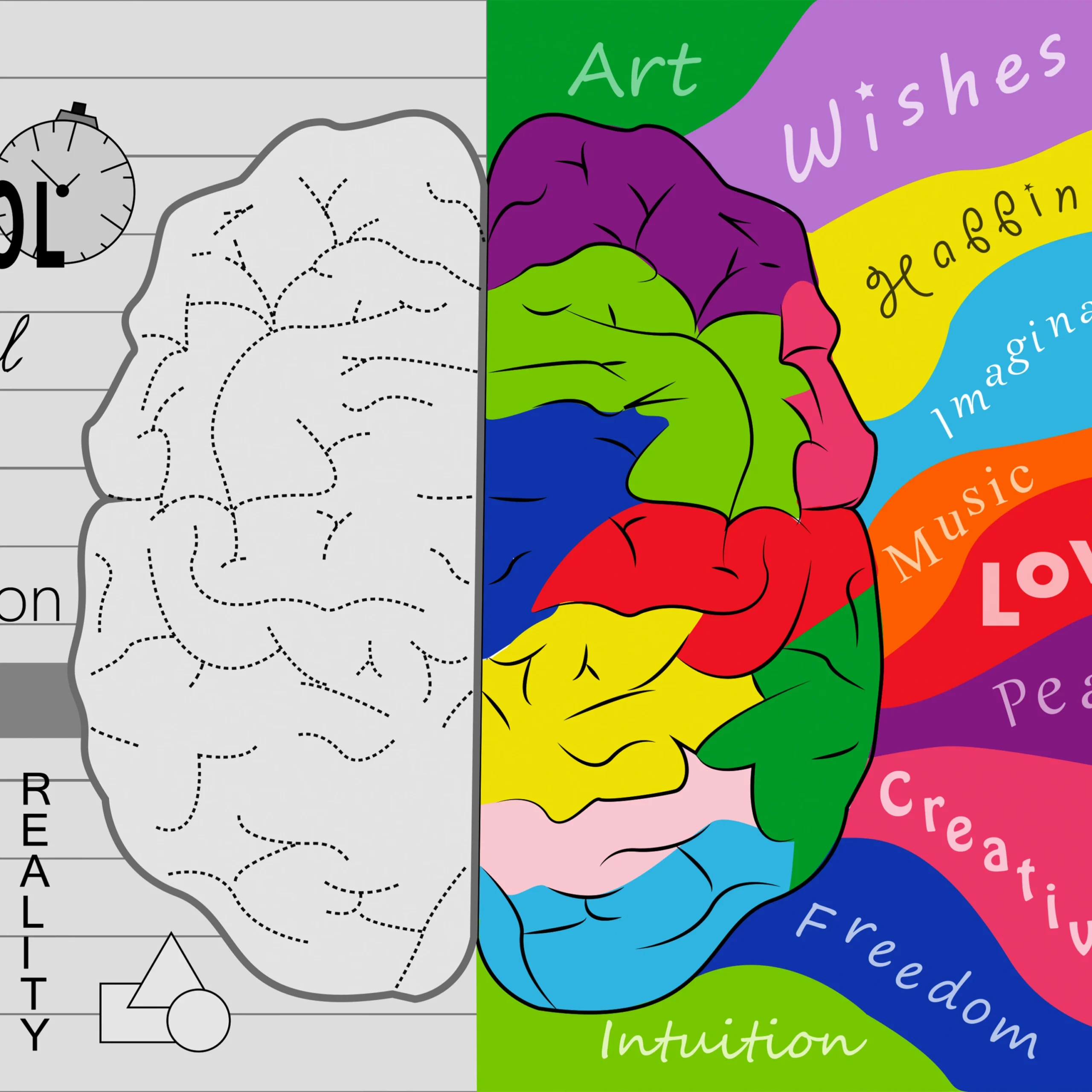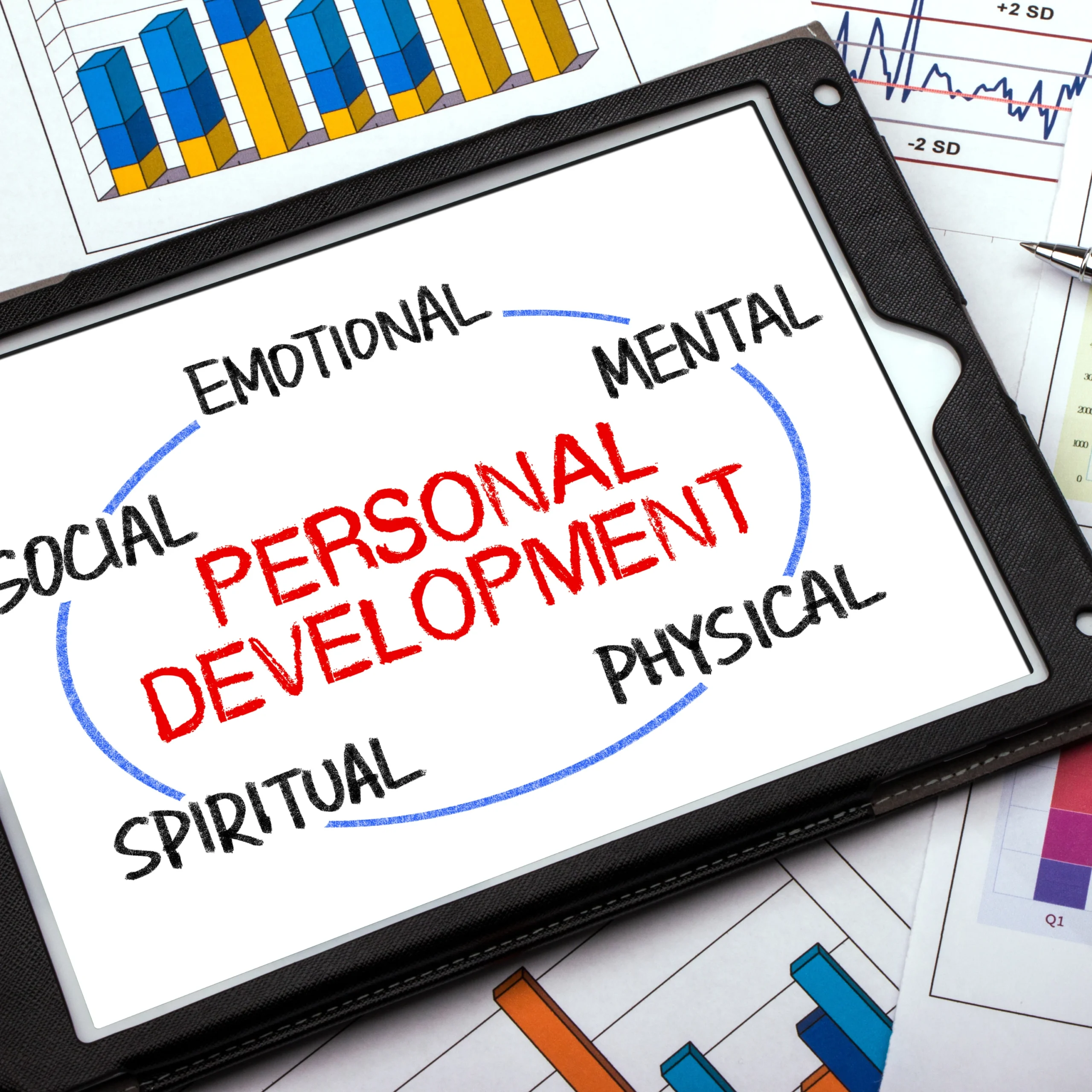Can we talk about something that's been bugging me? Everyone's giving the same mental health advice.
"Meditate every day." "Write in a gratitude journal." "Set better boundaries." "Exercise more."
And look, sometimes this works. But what happens when you've tried everything and still feel terrible?
I've watched so many people blame themselves. They think they're doing something wrong. Maybe they're not meditating properly. Maybe they need to try harder with the journaling. Maybe they're just not cut out for wellness.
But here's what I've learned after years of working with people: the problem isn't you. The problem is that you're using strategies designed for someone else's brain.
Your personality isn't just some quirky trait. It's basically your mental operating system. And when you try to run software designed for Windows on a Mac... well, things get messy.

Why Generic Mental Health Advice Fails Your Personality Type
Most wellness advice treats everyone like we're identical. But we're not.
Take the classic "process your emotions" advice. Everyone says to journal about your feelings or sit quietly and reflect.
But what if that's not how your brain works? What if you're someone who figures things out by talking? You could spend hours trying to "sit with your feelings" and just end up more confused.
Or think about all those "self-care Sunday" posts. Bubble baths and face masks look great on Instagram. But if you're energised by being around people, a whole day alone might actually drain you.
The research shows that matching mental health strategies to personality types works way better than generic approaches. Yet somehow this never makes it into mainstream advice.
How Your Personality Affects Mental Wellness (The Science Behind It)
Your personality shapes everything about mental wellness. Everything.
Some people recharge by being alone. Others need social time to feel balanced. Try to recharge the wrong way and it's like using the wrong phone charger - nothing happens.
Stress hits different people differently too. Some need to think things through quietly first. Others work out problems by talking. Use the wrong approach and helpful strategies become frustrating obstacles.
Then there's motivation. Some people thrive on external recognition. Others are driven by internal satisfaction. Get this wrong and even positive activities can create stress.
Structure preference matters too. Some personalities love routines and detailed plans. Others feel trapped by too much organisation. That "perfect morning routine" everyone talks about? It might work brilliantly for one type and feel like prison for another.
Once I started paying attention to these patterns, everything made sense. People weren't failing at mental health strategies - they were using the wrong strategies for their personality.

The 4 Personality Types and Their Mental Health Patterns
Working with different people over the years, I've noticed clear patterns in how personalities approach mental wellness. Understanding yours can save years of frustration.
Mental Health Strategies for Verbal Processors
These people think out loud. They understand emotions and stress by talking about them, not sitting quietly.
Traditional meditation might actually make anxiety worse instead of better. Journaling feels awkward. A good conversation brings more clarity than hours of solo thinking.
Better approaches: Walking while discussing problems. Talk therapy. Support groups. Even talking to yourself out loud works better than silent reflection.
Mental Health Approaches for Internal Processors
These personalities need time to work through emotions privately before discussing them.
Group therapy can feel overwhelming. Being pushed to share feelings before processing them internally increases anxiety. Alone time is essential for recharging, especially during stress.
Better approaches: Solo reflection time. Written expression or art. Individual therapy. Quiet activities like yoga or nature walks. Space between stressful events and social situations.
Structured Mental Wellness for Organised Personalities
These types feel calmer with clear structure and expectations. Uncertainty increases stress.
Vague advice like "listen to your body" feels frustrating. They want specific, actionable strategies with clear steps and measurable outcomes.
Better approaches: Detailed wellness routines. Apps with clear guidance. Specific goals with tracking. Research-based methods they can understand completely.
Flexible Mental Health Strategies for Adaptable Types
These personalities prefer variety and flexibility. Too much structure feels restrictive and creates stress.
Rigid wellness routines might work initially but eventually feel suffocating. They need approaches that change with their shifting needs and energy.
Better approaches: Multiple wellness options to choose from. Permission to switch strategies. Intuitive self-care based on daily feelings. Flexible timing and methods.
Common Mental Health Myths That Ignore Personality Differences
Understanding these patterns shows why mainstream advice often backfires.
"Everyone should meditate daily" - Actually, some personalities do better with movement, conversation, or creative expression.
"Set firm boundaries" - For some types, wellness comes from connection and helping others. Rigid boundaries might harm their mental health.
"Process emotions immediately" - Some personalities need private processing time before they can address emotions effectively.
"Consistency is everything" - Some types maintain better mental health through varied, flexible approaches than rigid routines.
"Self-care looks the same for everyone" - Self-care varies completely by personality: social connection, solitude, achievement, or rest.

How to Identify Your Mental Health Personality Type
Figuring out your mental wellness personality starts with honest self-observation.
Think about energy:
- After stress, do you want company or solitude?
- Does social interaction energise or drain you?
- Do you think out loud or process internally?
Consider structure preferences:
- Do plans make you calmer or restricted?
- Do you want specific instructions or general guidelines?
- How do you handle uncertainty?
Notice stress responses:
- What's your first instinct when overwhelmed?
- What's actually helped during difficult times?
- Do you overthink or underthink problems?
Pay attention to motivation:
- External recognition or internal satisfaction?
- Immediate feedback or reflection time?
- What genuinely makes you feel accomplished?
No right or wrong answers. You're just collecting data about how your specific brain operates.
Want a clearer picture of your mental wellness personality? Take our free personality quiz to discover which patterns apply to you and get personalised recommendations.
Personalised Mental Health Strategies by Personality Type
Once you understand your patterns, choose approaches that work with your brain instead of against it.
Verbal processors: Voice memos instead of written journals. Walking conversations with friends. Support groups. Talking through problems out loud.
Internal processors: Protected quiet processing time. Written or creative expression. Solo wellness activities. Space between stress and social time.
Organised types: Detailed routines with specific goals. Progress tracking tools. Consistent schedules. Thoroughly researched approaches.
Adaptable types: Multiple wellness options available. Permission to change methods. Intuitive daily self-care. Flexible timing and approaches.
When to Seek Professional Mental Health Support
Sometimes understanding your patterns isn't enough. You might need help to identify blind spots, develop personalised strategies, or navigate the gap between knowing your patterns and actually changing daily habits.
Professional support becomes valuable when you've spent years fighting against your natural tendencies or when self-awareness alone doesn't create the changes you want.
Personality-focused coaching helps you understand not just what your patterns are, but how to use them practically for better mental health.
At lifebalance-wellbeing, we specialise in exactly this personalised approach. Our personality coaching creates strategies designed specifically for how your brain processes stress, emotions, and wellness.
Our courses teach you to apply personality insights for better emotional regulation and communication - skills that support long-term mental wellness.
For deeper exploration, our counselling provides space to understand how personality patterns developed and how they currently affect your wellbeing.

Transform Your Mental Health with Personality-Based Strategies
Your personality isn't something to overcome in your mental health journey. It's your roadmap to what actually works.
The goal isn't becoming a different person. It's understanding who you already are and working with that instead of against it.
Most people spend years forcing themselves into mental health strategies designed for different personality types. Then they wonder why nothing works and assume something's wrong with them.
Nothing's wrong with you. You just need the right approach for your particular brain.
Ready to Work With Your Brain Instead of Against It?
Understanding your personality's role in mental wellness is just the beginning. Real change happens when you consistently apply strategies that fit how your mind actually works.
If generic advice hasn't worked for you, personality coaching might be exactly what you need. You'll discover not just what your patterns are, but how to use them for sustainable mental wellness.
Book a free clarity call to explore how understanding your personality could transform your mental health approach.
Visit lifebalance-wellbeing.com to discover personalised strategies that work for your unique brain.
Your personality isn't the problem. It's the solution you haven't been using yet.
